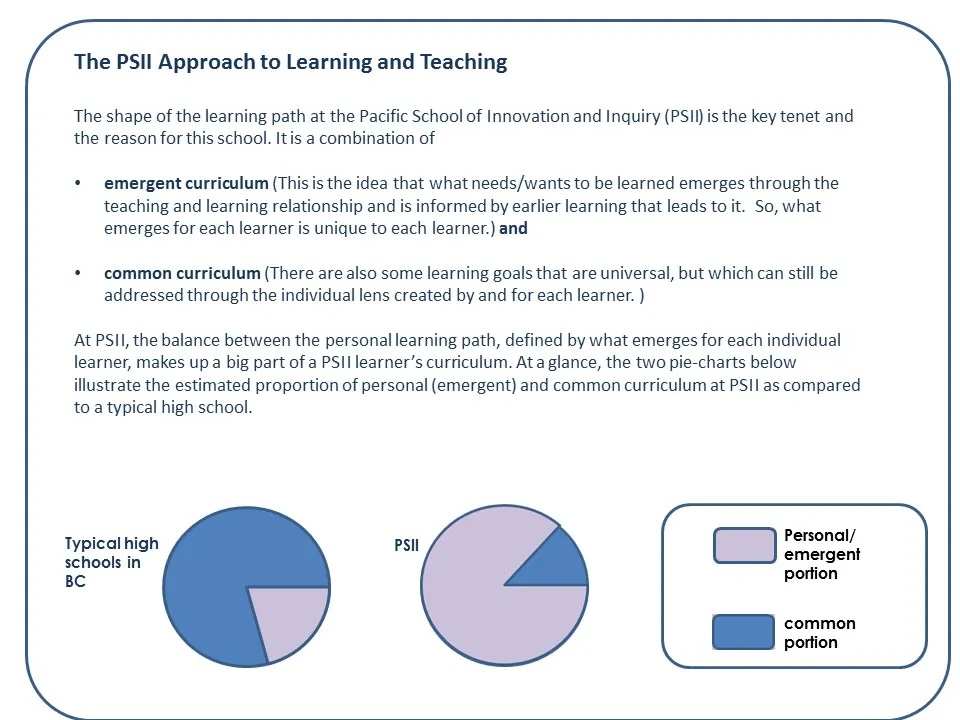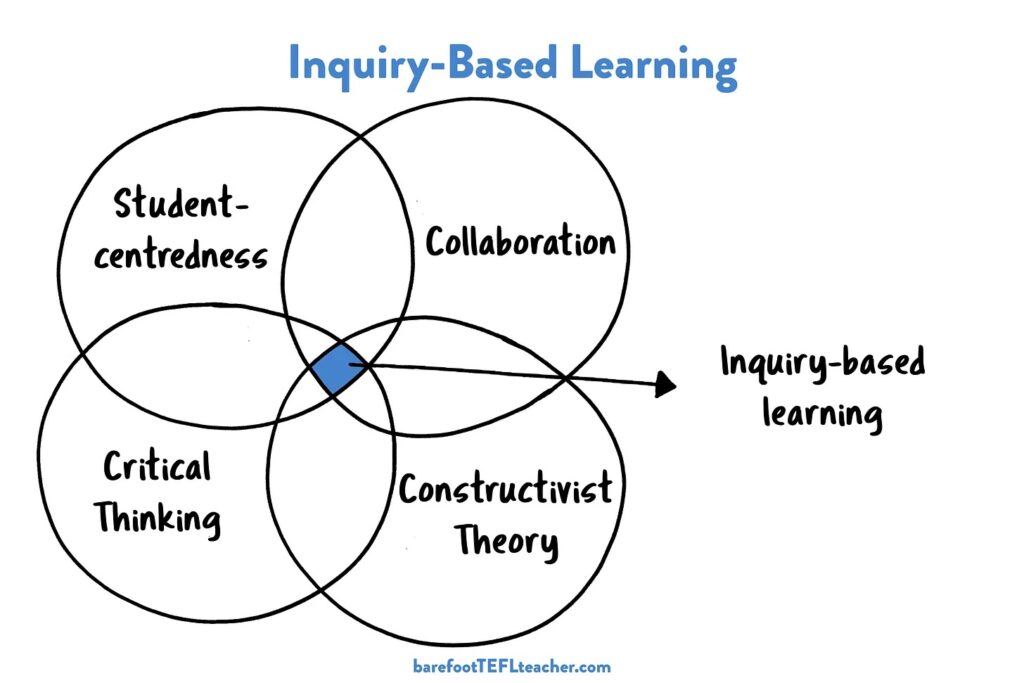Jeff Hopkins from Pacific School of Innovation and Inquiry gave a lovely, personal lecture for our Tuesday afternoon class. His passion for meeting learners where they’re at and guiding his students to follow the threads that they’re interested in was really refreshing. As someone who has a visual arts background, I felt like my university experience was very much that – figuring out what I wanted to explore, and then sharing that exploration with art making. Knowing these types of schools exist, I often wonder how I would have faired as a learner with this structure. While I am highly self-motivated, this is something I came to over time and practice and investigating my deep interests. In my high school experiences I don’t think I really even knew what my interests were. At the same time, maybe I was never given the space to explore that!

I think art as a subject has an easier time being explored through inquiry than content-heavy subjects such as math or chemistry. I’m still curious as to how all the curricular competencies are checked off and how the proper content is covered in schools like PSII, especially if students decide to take these content-heavy subjects in post-secondary school. Even still, I believe there is a way to combine inquiry exploration with more standardized schooling practices to get the best of both worlds: structurally strong lessons followed by self-motivated projects with self-created structure.

Taken from the blog Barefoot TEFL Teacher, these are the four pillars of inquiry based learning:
- Constructivist learning: This theory encourages learners to build knowledge through exploration and discovery. IBL assumes that this is correct.
- Student-centred: IBL puts the learner in control, giving them autonomy and allowing them to take charge of their learning journey (within limits).
- Collaborative: IBL promotes teamwork and interaction when solving problems.
- Critical thinking: IBL encourages higher-order thinking skills essential for success in the 21st century.
I really believe in this style of teaching as it seems more applicable to real-world existence and proves that learning takes place constantly outside of the echo-chambers of educational institutions. However, I do believe there are things that need to be covered within a student’s initial 12 years of education, and I’m curious as to how this is considered/covered within inquiry based schools. Jeff spoke a bit on this, but I feel the best way to actually cover bases is to have students complete required courses, much like university standards.